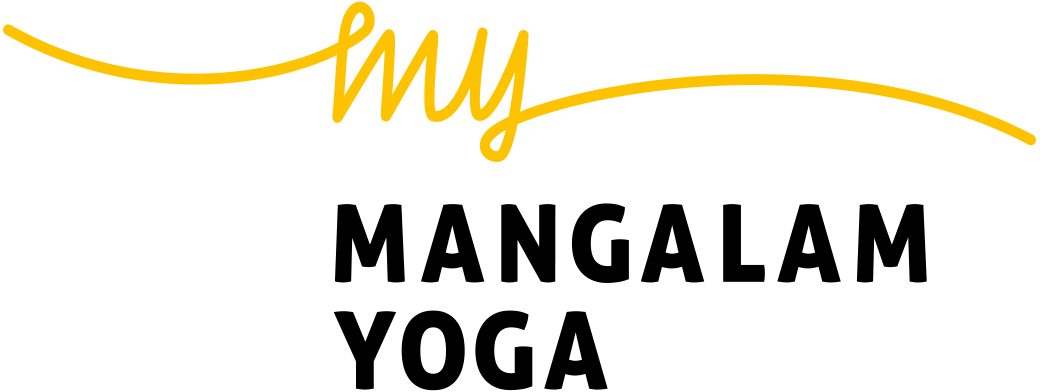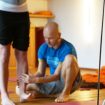Our programs include therapy, counseling, and holistic support designed to address both the physical and emotional challenges of addiction. Discover the stages of addiction, learn to recognize warning signs, how it progresses, and the steps you can take toward recovery. When people take drugs, the brain is flooded with chemicals that take over the brain’s reward system and cause them to repeat behaviors that feel good but aren’t healthy. SUDs can lead to significant problems in all aspects of a person’s life. Patterns of symptoms resulting from substance use (drugs or alcohol) can help a doctor diagnose a person with a SUD or SUDs and connect them to appropriate treatment.
Instead, they are a sign that the method of treatment needs to be changed. A multi-year study of people with substance use disorder showed that only about https://appsychology.com/living-in-a-sober-house/ a third of recovering individuals who had been sober for less than a year remained abstinent. Supporters for people struggling with addiction often wish they could do more to help, and it can be tempting to try. Allow the person to learn how to gracefully reject tempting offers by themselves.
Integrating Life Skills Training into Sobriety Programs
Mindfulness techniques combined with participation in support groups play a critical role in strengthening coping skills. These environments promote open dialogue about difficulties faced in recovery, allowing individuals to share problem-solving strategies. Various treatment options are available to help you or your loved one with addiction recovery. Treatment facilities range from inpatient and residential care to outpatient treatment. This model explains the stages a person goes through when making significant changes to their behaviors. It includes the fluid and non-linear nature of traversing these stages and the importance of personal willingness and motivation to change.
Non-Linear Progression: Navigating the Stages
- We are committed to healing everyone who enters our doors from the inside out.
- People can overcome drug addiction and have a satisfying life by following these steps and getting professional assistance.
- Engaging with support systems, whether through therapy, peer groups, or family interaction, further enhances both problem-solving abilities and overall resilience during the recovery process.
- Maybe they’re a close family member or friend, or maybe it’s someone you don’t know as well.
After rehab, the critical thing to remember is to take things one small sober house step at a time. During individual or group therapy sessions, patients will work with the therapist to restructure these negative behaviors into more positive, healthy patterns. Medical professionals often recommend MAT for treating alcohol use disorder and opioid use disorder.
It’s important to complement MAT with counseling and support groups to address the psychological and behavioral aspects of addiction. Staying committed means continuously making choices that support your health and well-being, even when challenges arise. Acknowledging and celebrating your progress is a vital part of recovery. It reinforces positive behaviors, boosts self-esteem, and reminds you how far you’ve come. Celebrations don’t have to be big or expensive; even small acts of recognition can be meaningful. Life after addiction can come with unexpected challenges, so it’s important to adapt your goals as needed.
Withdrawing from alcohol use disorder leads to several uncomfortable side effects, with a common one being sleep disturbances… Discover common CBT techniques to tackle challenges, from cognitive restructuring to exposure therapy. Discover the role of physiological dependence in addiction and unlock paths to recovery. ‘ Unveil the financial impact, drug pricing models, and the future of drug costs.
A third is establishing and maintaining a strong sense of connection to others; support helps people stay on track, and it helps retune the neural circuits of desire and goal-pursuit. Learning new coping skills for dealing with unpleasant feelings is another pillar of recovery. This finding can provide an insight for researchers to clarify the definition of recovery before designing the research. Ambiguity in the definition of recovery occurred when the researcher tried to emphasize the theoretical differences in its definition but overlooked them in practice. We need to relinquish certain restrictions of the theoretical definition, but instead exert them practically.
- Look for things that will help occupy your time and keep your mind off of drug cravings.
- There are common symptoms such as cravings, loss of control over drug use, and continued use despite bad effects on health.
- They are not occasion for blame or despair but for encouraging resumption of recovery.
- Allow the person to learn how to gracefully reject tempting offers by themselves.
In what ways does addiction recovery impact mental and emotional health?
An understanding of the disease of addiction is vital before joining any addiction treatment programs. Compulsive drug seeking and taking even under adverse circumstances is a hallmark of addiction, a chronic disease. It has an effect on the reward system of the brain, making it difficult for one to control one’s impulses. But it functions as part of the treatment of addiction, the recognition that addiction is a medical disease. According to Laudat’s article reviews on recovery, this concept is often defined by the majority of researchers as recovery from drug addiction.
Understanding Addiction
First, think about your specific needs and where you are in your recovery journey. For example, if you’ve relapsed after returning home from treatment in the past, you might consider trying another living environment, like a sober living home. Finishing a rehab program can come with lots of different feelings—excitement, fear, anxiety, and more. Yes, individuals get to apply all the skills they’ve developed in treatment to real-world situations.
Furthermore, they define recovery as the process of “overcoming both physical and psychological dependence on psychoactive drugs while making a commitment to society”. Under this definition, recovery includes the acts of avoiding drugs, achieving well-being, and refitting into society (10). Strengthening problem-solving skills is an invaluable part of the recovery journey. By cultivating these abilities, individuals not only address immediate challenges but also lay the foundation for a resilient and fulfilling sober life.
If you have an underlying mental health problem, such as anxiety or depression, it could worsen during the withdrawal phase. Healthcare providers can be very supportive and helpful while navigating these challenges. Both types of programs often include individual counseling, group therapy, and life skills training to promote long-term recovery. Engaging with a mental health counselor can address underlying issues contributing to addiction. Developing healthy habits, like regular exercise and proper nutrition, can also support your mental and physical well-being.
There are no lab tests that define recovery and no universally agreed-on definition of recovery. For many experts, the key components of addictive disorder are compulsive drug use that continues despite detrimental consequences, and the development of cravings with the inability to control use. Addiction develops over time, in response to repeated substance use, as the action of drugs changes the way the brain responds to rewards and disables the ability to control desire for the drug. The National Recovery Month webpage provides a host of resources that can be used to help promote the observance.
Health care professionals and clinicians should be aware of the different suitable approaches that should be taken to promote and maintain recovery. The imbalance of power between a person in recovery and clinicians and the focus on abstinence is another important issue and can be resolved by focusing on the definition. We will report the analytic phase of this research project as an addiction recovery concept analysis in Iran. Sobriety programs increasingly integrate life skills training to help individuals sustain their recovery. Strategies such as experiential therapies, group discussions, and skill-building workshops allow participants to practice their problem-solving in real-life scenarios. These programs focus on resilience-building by encouraging individuals to reflect on their triggers and develop proactive coping strategies.
Choosing the Ideal Rehab Center Near You
Nevertheless, many treatment programs, including Alcoholics Anonymous, require a commitment to complete abstinence as a condition of admission. Patience, persistence, and perseverance significantly contribute to sobriety by providing a framework for navigating the complexities of recovery. Patience is crucial because the path to sobriety is often non-linear, requiring individuals to accept that healing takes time and to stay committed even through difficult phases. Persistence acts as a driving force, enabling individuals to tackle the inevitable challenges and setbacks they encounter, reinforcing their resolve to continue their journey. Perseverance is vital in maintaining a steadfast commitment to personal health goals, ensuring that progress is made even when faced with obstacles. Together, these attributes foster resilience and stability, essential for long-term success in recovery efforts.
They are not occasion for blame or despair but for encouraging resumption of recovery. Families can develop awareness of a loved one’s emotional, environmental, and social triggers of substance use and manage those. Studies show that families that participate in treatment programs increase the likelihood of a loved one staying in treatment and maintaining gains. Research and clinical experience have identified a number of factors that promote recovery. Another is reorienting the brain circuitry of desire—finding or rediscovering a passion or pursuit that gives meaning to life and furnishes personal goals that are capable of supplanting the desire for drugs.






